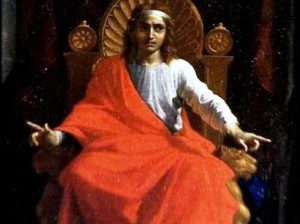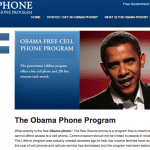At a meal recently with two men who were older and much wiser than myself, the prevailing theme of the conversation was what you might call “acquired ignorance.” There’s so much we don’t know — and the further along we get in life, the less we’re willing to say that we know for certain.
There were three identifiable steps to the process:
FIRST: THE RISING. “I used to think I had it all figured out,” both of the men agreed. Building families, building businesses, building ministries, they believed they knew what God wanted them to do, believe they knew what was best to do, what would be effective and successful.
SECOND: THE HUMBLING. Both men went through experiences that humbled them and caused them to question whether they really “knew” what they believed they knew. Something occurs in their lives — often involving some sense of deep personal failure — that causes them to deeply question their certainties, their motives, their former self-confidence. It strikes at their very image of themselves, and they will never be the same. They will not be less bold or less active. But they will be less strident, more humble, more willing to extend grace to the faults of others.
THIRD: THE RECOGNITION. They had grown up with ideologies and assumptions, strategies and programs. In retrospect, they question their motives and they question whether their efforts were really all that effective. Now, they’re much less likely to march off in a certain direction based on their confidence that they know the path to take — and much more likely to feel their way forward, prayerfully, observantly, inch by inch. They have gone from building empires to living among the ruins of their own misbegotten ambitions and seeking a way to make sense of it all. Viewed spiritually, they become much more compliant in the hands of God, much more dependent on God’s guidance moment to moment.

I’ve observed this in many fields. Our youthful self-confidence is challenged and undermined, and wisdom is found not in denying the things you do know — there are still things worth affirming, things revealed or received and understood — but in recognizing how limited our field of knowledge is, because of how limited we are. As Kierkegaard wrote, “The doubt that saves doubts itself.”
So we reach the question: what about politics? If wisdom in so many fields is marked by the willingness to say “I don’t know,” should we hear more “I don’t know” in politics?
I have my general convictions. A smaller government promotes liberty and opportunity. Strengthening family structures is essential to social cohesion and economic flourishing. I believe that Obamacare on the whole is bad law, and President Obama’s stimulus was a terrifically inefficient expenditure of funds and a poor response to the financial crisis.
But if I’m honest with myself, I don’t really know these things. I think them. I believe them, sometimes passionately, but I don’t know for certain. And now we have thousands of politicians around the country walking around and expressing their radiant certitudes. What would happen if politicians actually admitted their ignorance, instead of professing perfect certitude that their side is always right?
What would happen if a politician said, “You know, I think that a tax cut would be helpful, but I’m not too sure. Let’s give it a shot and keep a careful eye on what happens.” He might not win reelection, but he’d win my admiration.
What do you think? Is it political suicide to say “I don’t know”? Would there be wisdom in saying “I don’t know” on political matters, in recognizing that our certitudes are not so certain after all? Is our preference for politicians who project absolute certitude preventing us from electing politicians who are truly wise?









